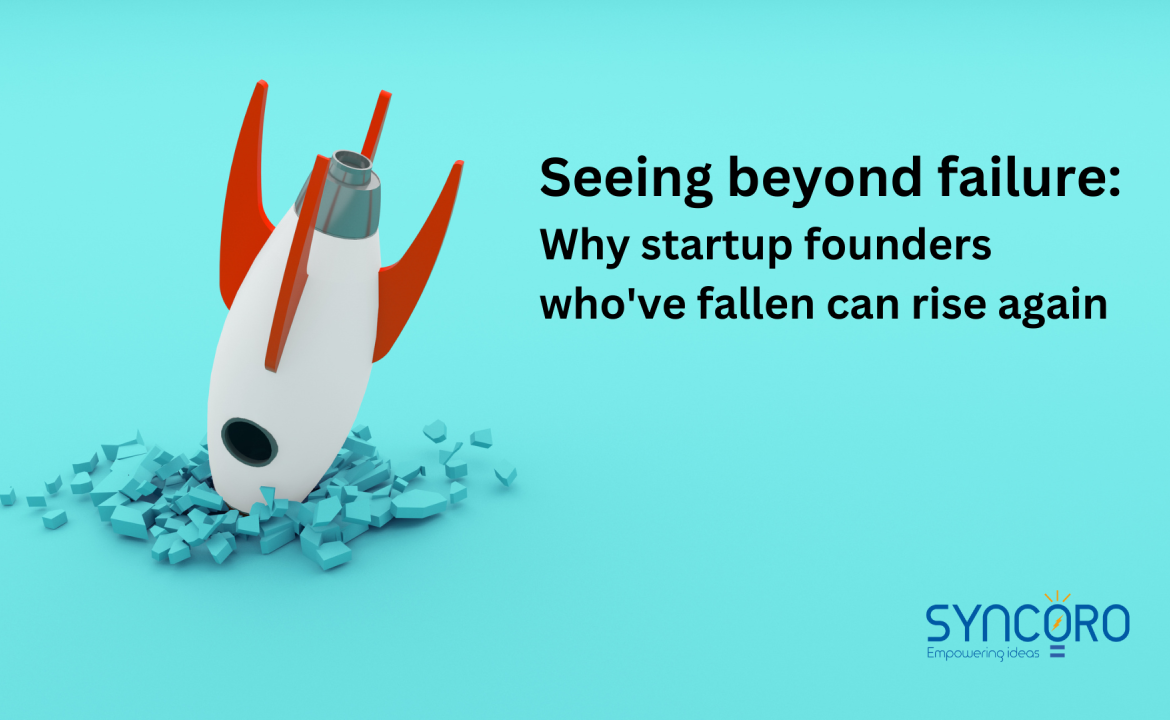Seeing beyond failure: Why startup founders who’ve fallen can rise again
In the fast-paced world of startup investing, success stories often dominate the headlines, while failures are relegated to the footnotes. However, behind every failed startup lies a wealth of untapped potential and valuable insights waiting to be unlocked. The failed startup founders shouldn’t be dismissed, but rather embraced as valuable assets in the investment landscape.
Investors may consider failed startup founders attractive for a few reasons:
- Real education: Forget MBAs. These founders have gotten their hands dirty. They know what it takes to hustle, to stay lean, and to adapt when things go sideways. They’ve learned from their mistakes the hard way, the best way.
- Undying will: Building a startup is a marathon, not a sprint. You need the kind of relentless drive that only comes from staring failure in the face and saying, “Bring it on.” They’ve tasted defeat and are hungrier than ever to come back stronger with firm determination.
- Hard-won wisdom: Failure is a brutal teacher, but the lessons learned are invaluable. They’ve been there, done that, and lived to tell the tale (about the terrible market fit, the wrong team, or the underestimated competition). Their next idea is likely laser-focused on a problem they understand intimately.
- Built-in network: They’ve already built relationships with advisors, potential customers, and other hustlers in the game. This ready-made network is a force multiplier for their next venture.
It’s important to note that not all failed founders are created equal. Investors will likely consider the reasons behind the failure and the founder’s ability to learn from them. Here are some additional points to consider:
- The quality of the new idea: A great founder with a mediocre idea is still a risky bet.
- The founder’s ability to adapt and learn: Can they demonstrate what they learned from the failure?
- The domain expertise: Did they fail in a similar space? Can they leverage those learnings?
Overall, while there are compelling reasons to consider founders who have experienced startup failure, a nuanced evaluation is key for investors.
The Art and Science of Picking a Winner
Selecting a founder is a fascinating mix of art and science. Investors use data and frameworks to assess the basics: relevant experience, market opportunity, and financial projections. However, equally important are the intangible qualities like leadership, passion, and the ability to inspire. This is where the art comes in. Experienced investors develop a sixth sense for spotting these qualities, often relying on intuition and past experiences to identify founders with the “X-factor” that can propel a startup to success.
In a nutshell
Failure is often viewed as a scarlet letter, marking founders as damaged goods unworthy of further investment. However, a closer examination reveals that failed startup founders possess a wealth of valuable attributes and experiences that make them prime bets for savvy investors. From resilience and battle-tested experience to humility and hunger for redemption, these founders bring a unique set of qualities to the table that can drive future success. By betting on failed startup founders, investors can not only tap into their potential for growth and innovation but also play a pivotal role in their journey to redemption and success.

